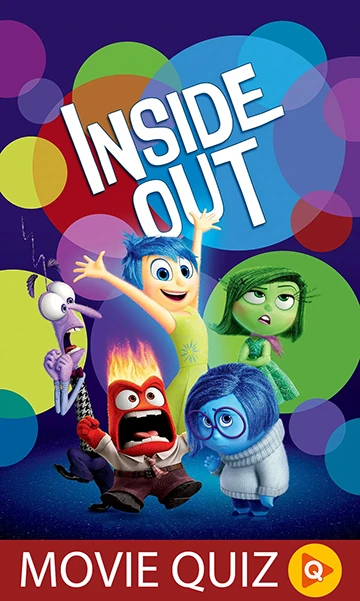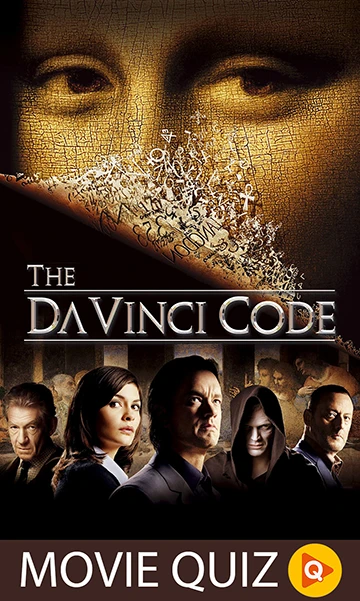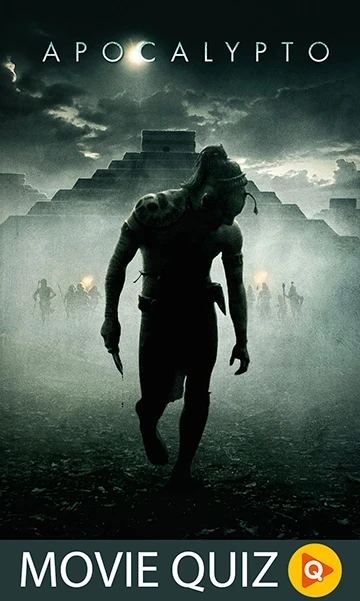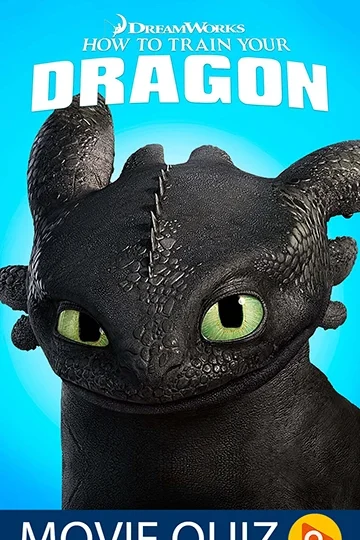
Inside Out (2015) is one of Pixar’s most heartfelt and imaginative films, taking us deep inside the mind of a young girl named Riley and showing us how her emotions shape her world. Directed by Pete Docter, this colorful and clever movie explores the importance of feelings like Joy, Sadness, Fear, Disgust, and Anger in navigating life’s changes.
But how much do you remember about this emotional rollercoaster? Take this 10-question trivia challenge and test how well you know Riley’s journey and the unforgettable characters living inside her head. Only true Pixar fans will ace this quiz!
Inside Out Trivia Questions & Answers
Here are the correct answers to each question, along with detailed explanations to refresh your memory and highlight the emotional brilliance of Inside Out (2015):
- What is the name of the main character whose emotions we follow?
Correct Answer: Riley
Riley is the 11-year-old girl at the center of Inside Out. The entire film takes place both inside her mind and in the real world as she struggles to adjust to a major life change. Her emotions — Joy, Sadness, Anger, Fear, and Disgust — guide her behavior and reactions as she navigates growing up and facing challenges.
- How many core emotions control Riley’s mind in Inside Out?
Correct Answer: Five
The story revolves around five core emotions: Joy, Sadness, Anger, Fear, and Disgust. Each of these emotions is personified and has a distinct personality, working together (and sometimes clashing) to help Riley process her experiences and emotions.
- Which emotion is voiced by Amy Poehler?
Correct Answer: Joy
Amy Poehler provides the voice of Joy, the optimistic and enthusiastic leader of Riley’s emotions. Joy’s mission throughout the film is to keep Riley happy and positive, though she ultimately learns that sadness and other emotions are just as important for Riley’s well-being and growth.
- What event causes Riley’s emotional turmoil?
Correct Answer: Her family moves to San Francisco
Riley’s life is turned upside down when her family moves from Minnesota to San Francisco. She struggles to adjust to a new home, school, and environment, triggering the emotional chaos inside her mind and setting the story in motion.
- What is the name of Riley’s imaginary friend?
Correct Answer: Bing Bong
Bing Bong is Riley’s forgotten imaginary friend from her childhood, a lovable mix of cat, elephant, and dolphin with a cotton candy body. He becomes an important ally to Joy and Sadness during their journey through Riley’s mind, ultimately sacrificing himself so that Joy can return to headquarters and help Riley.
- Which emotion accidentally turns a core memory sad?
Correct Answer: Sadness
Early in the film, Sadness touches one of Riley’s core memories, turning it from happy to sad. This event sparks the central conflict, as Joy and Sadness are accidentally ejected from headquarters, leaving Anger, Fear, and Disgust to manage Riley’s emotions.
- What color is the character Anger?
Correct Answer: Red
Anger, voiced by Lewis Black, is a small, red, hot-tempered character who reacts explosively when things don’t go Riley’s way. His outbursts are both comedic and relatable, illustrating how anger is a natural part of growing up and dealing with frustration.
- What personality island represents Riley’s love for her family?
Correct Answer: Family Island
Family Island is one of Riley’s five core personality islands, representing her love and connection to her parents. As Riley’s emotions spiral and the islands begin to collapse, Family Island’s survival becomes symbolic of her relationship with her family and her sense of stability.
- What happens to Bing Bong in the movie?
Correct Answer: He sacrifices himself
In one of the most emotional scenes in Pixar history, Bing Bong sacrifices himself in the Memory Dump so that Joy can escape and return to headquarters. His selfless act and final words, “Take her to the moon for me,” leave a lasting impact on both Joy and the audience.
- What is the lesson Riley learns by the end of the film?
Correct Answer: It’s okay to feel sad
The film’s powerful message is that all emotions, including sadness, are important and necessary for personal growth and emotional balance. By the end of the movie, Riley learns to accept and express her feelings rather than suppress them, leading to healing and deeper connections with her parents.













